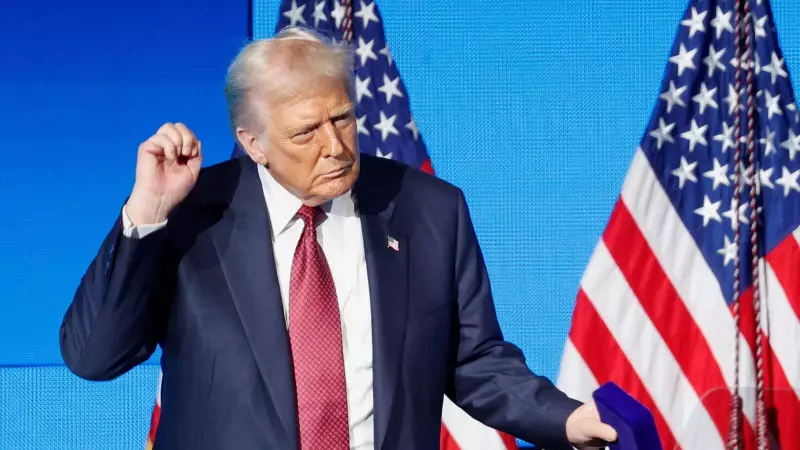
In a dramatic escalation of rhetoric, former US President Donald Trump has issued a startling threat to conduct military strikes within Nigerian territory, vowing to "wipe out" Islamic terrorist groups operating in the African nation. The controversial statement has triggered immediate backlash from Nigerian authorities and raised concerns about international sovereignty.
The Provocative Declaration
During a recent public appearance, Trump declared his intention to take direct military action against terrorist organizations in Nigeria if given the opportunity. "We're going in there, and we're going to wipe them out," the former president stated, referring to Islamic extremist groups that have plagued certain regions of Nigeria for years.
Trump's comments specifically targeted groups like Boko Haram and Islamic State West Africa Province (ISWAP), which have been responsible for numerous attacks and humanitarian crises in northeastern Nigeria. However, his approach of threatening unilateral action against a sovereign nation has drawn widespread criticism.
Nigeria's Forceful Response
The Nigerian government responded swiftly and firmly to Trump's threats, emphasizing the nation's capability and commitment to handling its own security challenges. Nigerian officials highlighted that:
- Nigeria maintains a sovereign right to address its internal security matters
- The country's military has made significant progress against terrorist groups
- International cooperation must respect Nigeria's territorial integrity
- Unilateral threats undermine established diplomatic protocols
"We will not tolerate any foreign power threatening to violate our airspace or territorial integrity," a senior Nigerian official stated, making the country's position unequivocally clear.
Regional and International Implications
The exchange highlights the delicate balance in international counter-terrorism cooperation. While Nigeria has welcomed support from international partners, including the United States, the relationship must be built on mutual respect and adherence to established protocols.
Security analysts note that Trump's approach represents a significant departure from conventional diplomatic engagement in counter-terrorism efforts. Such rhetoric could potentially:
- Complicate existing security partnerships
- Undermine regional counter-terrorism frameworks
- Create unnecessary diplomatic tensions
- Potentially embolden terrorist propaganda
Historical Context and Current Realities
Nigeria has been battling Islamist insurgencies for over a decade, with Boko Haram's activities causing widespread displacement and humanitarian crises. The United States has provided various forms of support to Nigerian security forces, including intelligence sharing, training, and limited military assistance.
However, the concept of direct US military strikes within Nigerian territory without explicit government approval represents a dramatic escalation that would violate international norms and potentially set dangerous precedents for foreign intervention in African affairs.
The situation continues to develop as diplomatic channels remain active between the two nations, with both sides seeking to clarify positions while maintaining important security cooperation against common terrorist threats.





